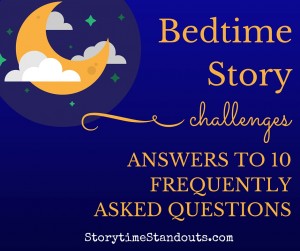Reading Aloud to Children
10 FAQs About Reading Books Aloud to Kids
Simply put, reading aloud to your children will positively affect them for the rest of their lives. Here are the answers to 10 frequently asked questions about reading aloud.

Reading aloud and sharing wonderful stories will make your children laugh (and cry). It will expand their vocabulary, broaden their view of the world, teach them lessons, prepare them for formal reading instruction and create long lasting family memories. Here are my answers to ten frequently asked questions about reading aloud to children…
When should I start reading to my baby?
Some people would say, “Start while the baby is still in the womb.” I think six months is a good age. Ideally, starting to read aloud to your child should happen before your baby is really mobile. Snuggle up and enjoy a couple of board books every day.
When can I stop reading to my child(ren)?
My personal opinion is that you should continue reading aloud daily to your children (at least) until they are teens. We know that as children get older, the words, paragraphs and chapters become longer, there are fewer illustrations and the content is often more complex. If you continue to read to your child – even after he becomes an independent reader – you and he can enjoy books that are too challenging for him to read independently. This provides great motivation for him to continue reading
Who should read aloud to our children?
Everyone! I would love to have parents, grandparents, babysitters, aunts and uncles read aloud to children. Each adult can bring something special to the read aloud and/or storytelling experience. For boys, it is very valuable to have a male role model for reading. I know of one family where Dad reads the stories while Mom sits nearby and enjoys her own book. This is great modelling for the children to observe.
What if my child won’t sit still for a story?
Hearing the story is more important than sitting still for the story. Allow your child to bathe or colour or bounce a ball while you read aloud.
My child wants to hear the same story over and over again… I’m bored. What should I do?
Read your child’s favourite story and then offer an incentive to listen to something different… “We can turn the light out now and you can go to sleep OR you can stay up late tonight and hear this new story!” My prediction is 9/10 children will want to stay up late to hear a new story.
I have two children, aged six and three. Can I read the same stories to them or do they each need their own stories?
Ideally, I would try to read stories to each BUT that may only be possible occasionally. Just do your best.
What if a book includes a word or idea that I object to?
Rather than avoid the book altogether, use this as an opportunity to explain your objection to your child. Books can be great springboards for frank discussions about behavior, language and more.
My child likes those puzzle books but I find them really boring. What’s the point of those books?
I Spy, Spot Seven, Can You See What I See? are all books that help your child to notice small details and will also introduce new vocabulary. Enjoy these books in moderation.
Some of these fairy tales can be awfully scary… Is it okay to read them to my child?
You’re right, witches and potions and monsters can be scary. Be guided by your child. If your child wants to hear you read a scary story, trying it while sitting comfortably with you enables them to enjoy a shiver of excitement in a safe setting. One of my fondest camping memories involves a campfire, a book of ghost stories and a flashlight!
English is not my first language. I am uncomfortable reading English to my children. What should I do?
Books on tape or CD could help you and your child enjoy books together. Look for these at your local library. While you are at the library, find out about storytimes. Many libraries offer several opportunities for children to hear stories read aloud. Wordless and almost wordless picture books may also be a good choice for you and your child because they can be enjoyed in any language. Finally, you will spend many years encouraging your child to try new things – I would encourage you to try reading at least one English book to your child every day even though you may make mistakes.












































